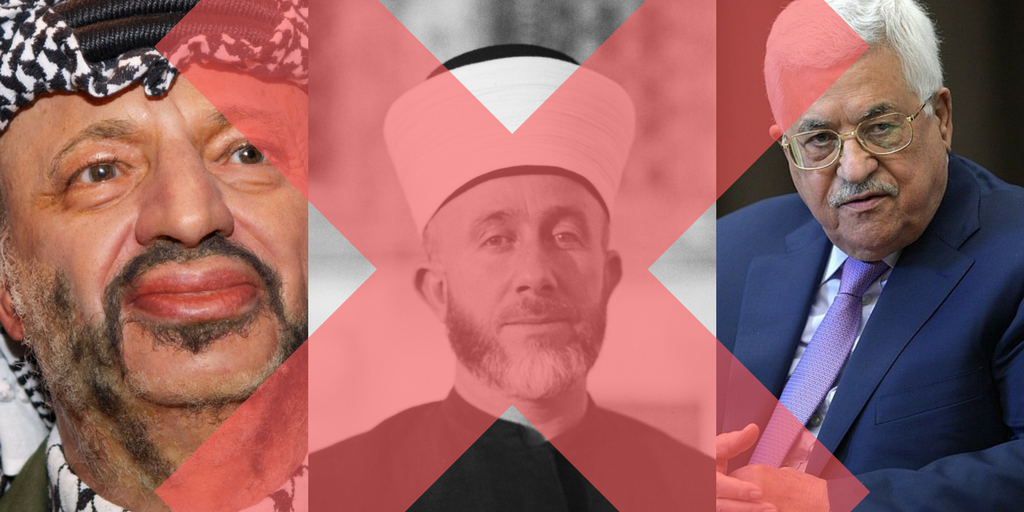For fruits of Israeli victory to endure, any post-victory reality must preclude a self-governing Palestinian entity, which would always be subjected to external incitement to fight the Jewish “intruders”
Of all the nations at the UN the Palestinian state would be the only one which has limits imposed on its sovereignty, the only one without an army or air force. It would be the only one in the world that would be classified as second-class state; it would resemble the black protectorates in South Africa. Such inferiority…would mean a deepening of Palestinian humiliation, an intensification of the enmity towards Israel and the perpetuation of the Arab-Jewish conflict. This is the real pitfall in the proposal to establish a separate Palestinian state between us and the desert. – Prof. Amnon Rubinstein “The Pitfall of a Third State” (Hebrew), Ha’aretz, August 8, 1976.
This was not really the topic I originally intended to write on this week.
Indeed, having devoted my last three columns ( see here, here and here) to the newly launched Congressional Israel Victory Caucus (CIVC), I thought the time had come to turn to other issues—like, for instance, an analysis of the rambling 5000-word rant in Haaretz by Ehud Barak, trying to prove that the “Right” (and reality) got it wrong, while the “Left”, despite being proven continuously and catastrophically wrong, got it right.
Eagerly accepted invitation
However, following this week’s response by Daniel Pipes, the driving force behind CIVC, to my tripartite analysis of his initiative, a good number of readers urged me to address the points he raised—particularly the few on which our views appear to diverge.
Accordingly, I will forgo the tempting opportunity to lampoon the presumptuous gall of the man, who, as prime minister abandoned South Lebanon to Hezbollah and under whom the Second Intifada erupted, and who as defense minister oversaw two inconclusive (to be charitable) campaigns against Hamas in Gaza, purporting to have the definitive prescription for the nation’s security. Instead, I shall turn my attention once again to the issue of Israeli victory and Pipes’s comments on the positions I articulated thereon.
I do this because I feel the CIVC is an initiative of critical importance with genuine paradigmatic game-changing potential for the discourse—and hence, policy formulation – regarding both the Israel-Palestinian conflict and the wider Arab-Israel one.
I begin this week’s discussion with an expression of thanks to Pipes for his thoughtful–and thought-provoking—reply, which, revealed wide areas of agreement between us, leaving me greatly heartened. Indeed, he sums up: “I’m encouraged that we agree on so much and look forward to working together to promote a goal whose time has come: Israel victory.”
Similarly encouraged, I eagerly accept his kind invitation to work together to promote the notion of—and the need for—Israel to be victorious.
Revolutionizing the rhetoric?
Arguably one of the most significant contributions the promotion of the CIVC initiative has made to the discourse on the Israeli-Palestinian conflict is in the realm of the rhetoric in which it is conducted.
For the first time in several decades, certainly within the post-Oslo period, has a prominent center of intellectual endeavor, the Middle East Forum, headed by Pipes, himself a scholar of international repute, adopted language invoking harsh coercive measures, specifically designed to break the will of the Palestinian-Arabs to sustain their struggle against Israel.
Thus, with commendable daring, Pipes has opened up the mainstream discourse for the use of terms, previously beyond the pale in “polite company”.
Thus, he unabashedly calls for subjecting the Palestinians to “the bitter crucible of defeat, with all its deprivation, destruction, and despair” and does not shy away from prescribing that Israel “dismantle the PA’s security infrastructure…reduce and then shut off the water and electricity that Israel supplies…occupy and control the areas from which…gunfire, mortar shelling, and rockets…originate.”
This is both refreshing and beneficial, for it will contribute greatly to breaking up the semantic “logjam” that the tyranny of political correctness has imposed on the discussion of Israeli policy options. By dispelling sematic taboos that restrict open debate, the CIVC rhetoric can contribute greatly to a more robust and unfettered appraisal of such options.
Debating disagreement
Pipes concisely sums up the principal point of disagreement between us: “Sherman and I directly disagree on only one point – Israel accepting the possibility of a Palestinian state”. He goes on to speculate that “… the allure of a state after the conflict ends offers benefits to both sides. Israelis will be free of ruling unwanted subjects. Palestinians have a reason to behave.”
He elaborates on his rationale for the benefits he envisions emerging from the establishment of a Palestinian state, pursuant to an Israeli victory: “…when Palestinians do finally give up the fight against Israel, their centrality to the conflict will enfeeble anti-Zionism from Morocco to Indonesia….” He admits: “That shift won’t happen instantly, to be sure”, but somewhat optimistically suggests that “sustaining a more-Catholic-than-the-pope position gets harder over time. A Palestinian defeat marks the beginning of the end of the wider Arab and Muslim war on Israel.”
I confess to a certain amount of surprise at encountering this view from someone as knowledgeable and well-informed as Pipes. For he appears to be embracing the unfounded thesis that Arab/Muslim enmity towards the Jewish state centers solely—or at least , almost so—on the issue of self-determination for the Palestinian-Arabs.
Sadly, this is demonstrably untrue—or at least, only very partially true.
Indeed, it is a matter of historical record that rejection of a Jewish state pre-dates the dispute over the establishment of a Palestinian-Arab one in Judea-Samaria—and there are manifold reasons for believing that it will definitely post-date any such event.
“Root cause” or “red herring”?
The crucial question is therefore whether the demand for Palestinian statehood is indeed a genuine grievance, which, once addressed, will remove any further pretext for rejection of Jewish statehood? Or whether it is not? There is little to substantiate the former and much to corroborate the latter.
After all, the entire area of Judea-Samaria, now claimed as the Palestinian-Arabs’ ancient homeland, was under Arab control for two decades after Israel’s founding (1948-1967). without even the feeblest of effort being made to set up an independent state for them. Moreover, in their original National Covenant – formulated in 1964(!) the Palestinian Arabs themselves eschew any sovereign claim to that territory—see Article 24. It was thus not a desire to liberate Nablus, Hebron or Ramallah that prompted the murderous pan-Arab attempt to obliterate the Jewish state in June 1967, accompanied by bloodcurdling declarations of genocidal intent by leaders across the Arab world—before Israel held a square inch of the “West Bank” or laid a single brick in the construction of any “settlement” – see Reassessing ‘Root Causes’ And ‘Red Herrings’ .
Indeed, it would take a giant leap of (largely unfounded) faith to believe that the establishment of a micro-mini statelet (presumably demilitarized), established as the result of a humiliating defeat, would defuse the ample Judeophobic frenzy rampant across the Arab/Muslim world today.
As Professor Amnon Rubinstein, Israel Prize Laureate and long serving Left-wing Knesset member, of the far-left dovish Meretz faction, once pointed out (see opening excerpt), this is even liable to induce “a deepening of Palestinian humiliation and an intensification of the enmity towards Israel and the perpetuation of the Arab-Jewish conflict.”
Inevitable symbiosis with hostile environment
The surrender of the Palestinian-Arabs in Judea-Samaria (and presumably Gaza as well) to the hated Zionists is unlikely to placate hatemongers of the ilk of the hugely influential Qatar-based Shaykh Yusuf Al-Qardawi, the head of Hezbollah, Hasan Nassrallah , the theocratic tyrants in Tehran, or the countless Salafist/Wahhabi firebrands across the Arabian peninsula and beyond.
As I suggested in earlier columns, unless there is some formula for decoupling the defeated Palestinian-Arabs in Judea-Samaria-Gaza from the wider Arab/Muslim world (to which they see themselves belonging and vice versa) any self-governing Palestinian entity would by easy prey to the deluge of incitement that would almost inevitably follow its inception.
Even Shimon Peres, seems to have been alive to this danger, when in his book, The New Middle East he asked how any future Palestinian state (even if initially demilitarized) could “guarantee that a Palestinian army would not be mustered later to encamp at the gates of Jerusalem and the approaches to the lowlands?” Perhaps even more pointedly, he pressed: “And if the Palestinian state would be unarmed, how would it block terrorist acts perpetrated by extremists, fundamentalists or irredentists?”
It is this almost inevitable symbiosis with the surrounding hostile Arab/Muslim world, unaffected by Palestinian surrender within Judea-Samaria-Gaza, that sets the Palestinian conflict apart from other historical precedents such as the surrender of Germany and Japan in WWII.
Who is doing the surrendering?
Israel has repeatedly—and rightly—raised—the question of who, among the Palestinian-Arabs, is authorized to sign a binding peace agreement with it. But an equally valid question is which Palestinians would be authorized to sign a binding document of surrender?
Thus, could Mahmoud Abbas, widely perceived as an illegitimate president, surrender in the name of the Palestinian Authority? Or Fatah? Would a Fatah surrender be binding on Hamas? If not what would be the consequences? Would Hamas’s acquiescence to surrender commit the Islamic Jihad or the host of Salafist Jihadis in adjacent Sinai?
Given the critical strategic importance of the territory designated for any prospective Palestinian state (see here and here), these are questions that cannot be left long unaddressed – for they impinge directly and dramatically on the validity of the CIVC as a policy-relevant enterprise.
It is the foregoing analysis that has led me to what, in my mind, is an unavoidable conclusion: For the fruits of an Israeli victory to be lasting, any post-victory reality must preclude the establishment of some self-governing Palestinian entity, which would always be subjected to external sources of incitement designed to reignite the Palestinian will to fight the Jewish “intruders” on land they consider Arab.
The only way to ensure that such resurgent irredentist forces do not emerge is to remove the potentially recalcitrant population from the disputed areas—for good.
In order to avoid the need to effect that removal by inflicting large-scale casualties on the Palestinian population I have advocated a less kinetic approach, involving generously funded emigration for individual non-belligerent Palestinian-Arabs.
Unwarranted skepticism
I have proposed achieving this by setting up a comprehensive system of ample material incentives for leaving, and daunting disincentives for staying. The former would include highly attractive grants for relocation and rehabilitation in third party countries, while the later would include the coercive dismantling of the Palestinian Authority and the phased withdrawal of services currently provided by Israel to the Palestinian collective—measures Pipes himself has endorsed (see above).
Pipes, however, has expressed reservations as to the practical efficacy of funded emigration. He writes: “Due to intense nationalism, even stronger social pressure, and likely threats of violence, I highly doubt this scheme will find significant numbers of takers” although he does concede that “it’s certainly worth a try”.
It is not precisely clear on what the skepticism regarding the effectiveness of funded emigration, is based. Indeed, much of it would appear unwarranted. After all, not only is its conceptual logic far sounder than other alternatives but it also rests on far more empirical support than they do –particularly the two-state proposal.
There is, in fact, ample evidence—both statistical and anecdotal—indicating a wide- spread desire among the Arab residents of the “West Bank” and Gaza to seek their future elsewhere—even without an effective system of incentives/disincentives being put in place.
Unwarranted skepticism (cont.)
Thus several years ago, the New York Times wrote of the growing desire to emigrate: “Where young Palestinians once dreamed of staying to build a new state, now many are giving up and scheming to get out”, reporting that “According to…polls for Birzeit University, 35 percent of Palestinians over the age of 18 want to emigrate. Nearly 50 percent of those between 18 and 30 would leave if they could”. When a prospective emigrant was asked by the NYT “What about those who would accuse you of giving up your rights in your land?” he replied “I don’t care…I want to live happily”.
A similar picture was reflected in a Jerusalem Post account of sentiment among the Palestinian-Arabs: “Alarmed by the growing number of Palestinians who are emigrating from the Palestinian territories, the Palestinian Authority’s mufti has issued a fatwa [religious decree] forbidding Muslims to leave.”
Recent polls conducted by leading Palestinian institutes consistently show between 45-55% of Gazans wish to emigrate permanently, while 25-35 % in Judea-Samaria express such wishes. Clearly, if Israel were to reduce and eventually cease provision of goods and services, while offering significant financial incentives to leave, the numbers could be expected to rise considerably…
This is a very truncated presentation of the evidence indicating that large-scale economically incentivized emigration of the Palestinian-Arabs is eminently feasible.
My appeal to the CIVC
Accordingly, since the CIVC cannot remain a politically viable enterprise if it restricts itself to generic calls for victory—especially if it plans to partner with a sister victory caucus in the Knesset—I urge its authors to adopt the funded emigration paradigm as its preferred path to victory.
I therefore issue a reciprocal invitation to its enterprising initiator, Pipes, to jointly explore ways to advance it and overcome/circumvent obstacles to its implementation by demonstrating its political acceptability, economic affordability, practical applicability, legal compatibility and above all, its moral superiority.











